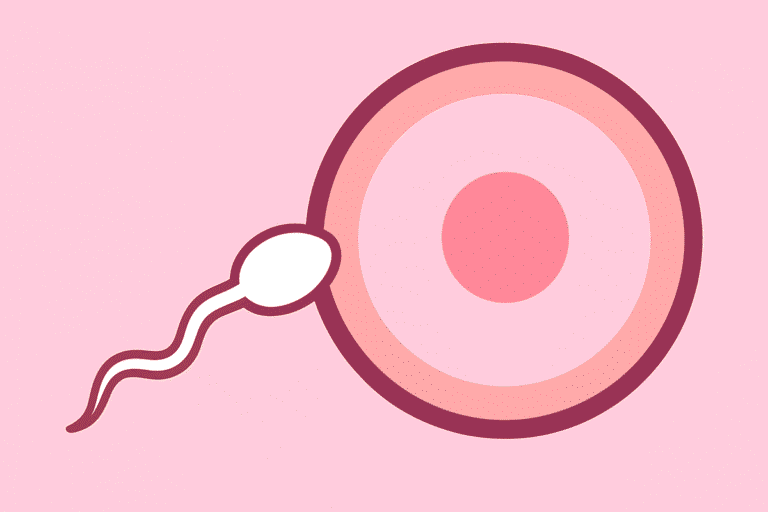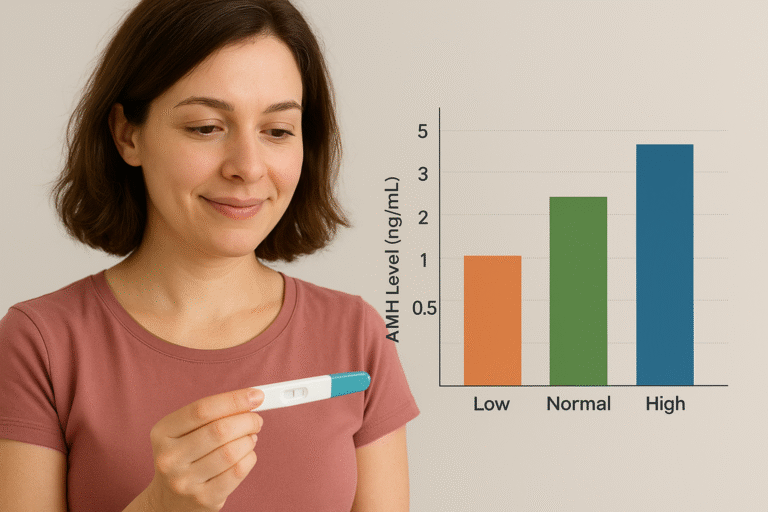Human Chorionic Gonadotropin (HCG) is a hormone that’s been making waves in both the medical and fitness worlds. Whether it’s for fertility treatments, weight loss, or boosting testosterone, HCG plays a role in several areas of health. But how exactly does it work, and is it really as effective as people say? Let’s dive in and answer some of the most common questions surrounding this hormone.
Also read: Pregnancy Vitamins: How to Choose the Best Prenatal Supplements
What Is HCG, and What Does It Do?
HCG, or Human Chorionic Gonadotropin, is a hormone naturally produced by the placenta during pregnancy. Its main role is to support pregnancy by stimulating the production of progesterone, which is vital for maintaining a healthy pregnancy.
In non-pregnant individuals, HCG is often used in medical treatments for various conditions like fertility issues or testosterone deficiency in men. It has also gained popularity in the world of weight loss, with many claiming that it helps to burn fat and suppress appetite. But how does it work, and is it a safe option?
The Role of HCG in the Body
HCG is produced in large amounts during pregnancy, helping to maintain the corpus luteum (a temporary endocrine structure in the ovaries) so that the ovaries continue producing progesterone. Outside of pregnancy, HCG is used in medical treatments to stimulate ovulation in women and sperm production in men.
For example, in fertility treatments, HCG injections are used to trigger ovulation in women with irregular menstrual cycles or those undergoing IVF (in vitro fertilization). In men, HCG is sometimes prescribed to stimulate testosterone production, particularly when there’s a deficiency.
Does HCG Really Help With Weight Loss?
One of the most controversial uses of HCG is for weight loss. The “HCG diet” became popular in the 1950s and has been making the rounds ever since. The premise behind the HCG diet is that HCG injections, combined with a very low-calorie diet (500 calories per day), can help people lose weight quickly.
The HCG Diet: What’s the Catch?
The HCG diet is a low-calorie eating plan, typically consisting of lean protein, vegetables, and fruits. The idea behind it is that the HCG hormone helps the body burn fat, leading to rapid weight loss without feeling hungry. While some people swear by the results, research on the effectiveness of HCG for weight loss is limited.
Experts argue that the weight loss observed on the HCG diet may be more related to the extremely low-calorie intake rather than the HCG itself. In fact, the FDA has stated that there is no evidence to support the claim that HCG helps people lose weight beyond what they would lose on a calorie-restricted diet alone.
Also read: How to Stop Hot Flashes Naturally: 10 Medicine-Free Remedies
Real Story: Emma’s Weight Loss Journey
Emma, a 35-year-old woman, tried the HCG diet after hearing about it from a friend. She had struggled with weight for years and decided to give it a shot. After a few weeks on the diet, she did lose 10 pounds, but she later realized that the drastic calorie restriction was what helped her shed the weight, not necessarily the HCG injections. “I felt very weak and dizzy at times,” Emma recalls, “but the quick weight loss was tempting.” After stopping the diet, she regained some of the weight, which reinforced the idea that long-term success in weight management comes from balanced eating and exercise, rather than quick fixes.
Is the HCG Diet Safe?
It’s crucial to understand the risks involved in the HCG diet. A 500-calorie diet can be dangerous, potentially leading to nutrient deficiencies and other health issues. The FDA has also warned that HCG products sold for weight loss are often unapproved and could be unsafe.
What Are the Side Effects of HCG Injections?
While HCG injections can be a life-changing treatment for many, they’re not without their risks. Depending on the dosage and individual circumstances, some side effects may occur. Common side effects include:
For women undergoing fertility treatments, the risk of ovarian hyperstimulation syndrome (OHSS) is a concern. This condition occurs when the ovaries become swollen and painful due to excessive stimulation.
Rare but Serious Side Effects
In rare cases, individuals may experience more serious reactions, such as allergic reactions, blood clots, or severe mood changes. If you’re considering HCG injections for weight loss or fertility treatment, it’s essential to consult with a healthcare provider who can monitor for any adverse effects.
Can HCG Be Used for Fertility Treatments?
HCG is commonly used in fertility treatments to help with ovulation. It is often given as an injection to women undergoing in vitro fertilization (IVF) or intrauterine insemination (IUI). In these treatments, HCG helps trigger the release of eggs from the ovaries, making them available for fertilization.
HCG for Women
In cases where women have difficulty ovulating or have irregular menstrual cycles, HCG can help induce ovulation. By mimicking the luteinizing hormone (LH) surge that naturally occurs during ovulation, HCG encourages the ovaries to release eggs, increasing the chances of conception.
HCG for Men
HCG is also used in men with low testosterone or those who are infertile due to low sperm count. In this case, HCG stimulates the testes to produce more testosterone and sperm.
Can HCG Cause Pregnancy Symptoms?
Since HCG is the hormone that confirms pregnancy, some people wonder if taking HCG injections can cause pregnancy-like symptoms. The answer is yes, it can. Some women report experiencing symptoms like nausea, bloating, and breast tenderness while on HCG injections, even though they are not pregnant.
Also read: Negative Pregnancy Test but No Period? Here’s What Could Be Going On
Real Story: James’ Experience with HCG for Fertility
James, a 40-year-old man, decided to try HCG injections after struggling with low testosterone levels. While the injections helped him increase his testosterone and improve his fertility, he noticed that his energy levels fluctuated, and he often felt irritable. “I didn’t expect to feel so off balance,” he says, “but the benefits of increased testosterone were noticeable.”
How Do I Use HCG for Weight Loss?
While many people use HCG for weight loss through the HCG diet, it’s important to approach it cautiously. The HCG diet typically involves injections or oral HCG drops combined with a very low-calorie diet. However, before considering such a drastic step, it’s important to talk to your doctor or a nutrition expert.
What’s the Best Way to Approach HCG Weight Loss?
For those who still choose to follow the HCG diet, it’s best to do so under medical supervision. A healthcare provider can help you manage side effects and monitor your health during the process. As with any weight loss program, it’s important to focus on sustainable, long-term habits like eating a balanced diet and exercising regularly.
Is HCG Available Over-the-Counter?
HCG is available by prescription only. While some companies sell HCG products like Dollar pregnancy kits online, it’s essential to be cautious. Unregulated Human Chorionic Gonadotropin (HCG) products can be ineffective or even harmful. Always consult a healthcare provider before purchasing HCG, whether it’s for weight loss or fertility treatment.
Is HCG Safe for Men?
Yes, HCG is safe for men when used properly. It’s often prescribed to help men with low testosterone levels or fertility issues. However, like any medication, it should be used under the supervision of a healthcare professional to minimize risks and side effects.
Real Story: John’s Success with HCG for Testosterone Boost
John, a 45-year-old man, was experiencing symptoms of low testosterone, including fatigue, low libido, and mood swings. After consulting his doctor, he was prescribed HCG injections to boost his testosterone levels. After a few months, he noticed a significant improvement in his energy levels and overall mood. “It was like a fog had lifted,” John says. “I felt like myself again.”
Also read: What Are the Symptoms and Causes of High Cortisol Levels?
Conclusion
HCG is a hormone with many uses, from fertility treatments to weight loss. However, it’s essential to approach Human Chorionic Gonadotropin (HCG) with caution. The HCG diet, while popular, may not be as effective as some claim, and the risks of using it without medical supervision can outweigh the benefits. If you’re considering HCG for fertility or weight loss, talk to your healthcare provider to ensure it’s the right choice for you.
While HCG can provide significant benefits in certain situations, like improving fertility or boosting testosterone, it’s crucial to understand the potential risks and side effects. By staying informed and consulting with a medical professional, you can make the best decision for your health and well-being.





[…] understand how pregnancy tests work in the first place. Pregnancy tests detect a hormone called human chorionic gonadotropin (hCG). This hormone is produced when a fertilized egg implants into the uterine lining. Typically, hCG […]
[…] Also read: Uses, Benefits, and Risks of Human Chorionic Gonadotropin (HCG) […]